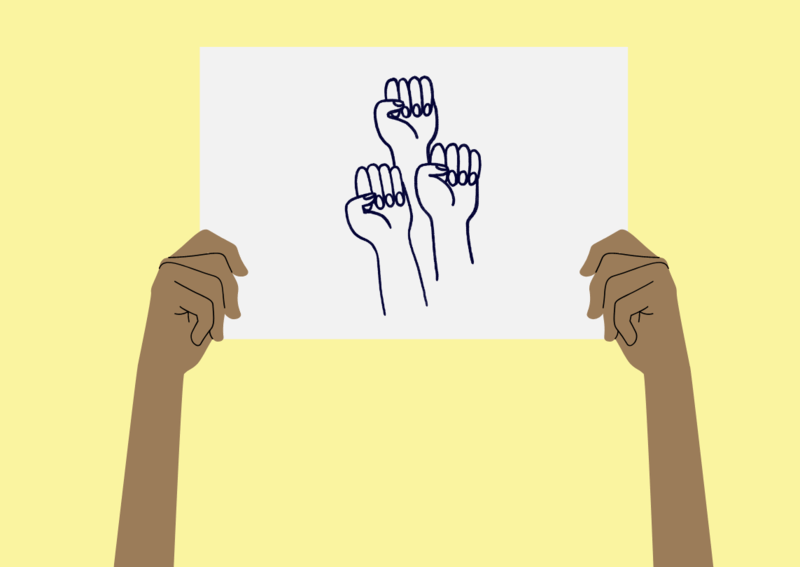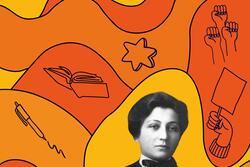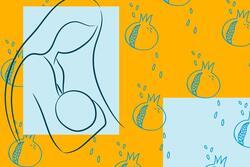Toward A Besere Velt (A Better World)
Second-class status is a designation understood by women across the globe. Historically and contemporarily women have been treated as less than men: unworthy of the same rights, respect, and societal importance. All too often women are solely regarded as vehicles of reproductive labor, only capable of keeping house and raising children. Significant progress has been made over the last century, but we are still a long way from true equality. Recently, the United States backslid decades with the Supreme Court ruling in Dobbs v. Jackson Women's Health Organization, which served to cement the idea that a woman’s body is not her own and that bodily autonomy is a right that belongs only to men.
Is it possible to get to a point of complete gender equality in a capitalist society? Do capitalist societies provide an adequate framework for supporting women’s liberation? To reach a world in which bodily autonomy is the norm and the expectation, in which economic and legal equity is realized, we must not only fight for specific issues, we must change the way our economy and society is organized. Jewish women have been advocating for such change for decades.
Rose Pastor Stokes, Rose Chernin, and Rose Wortis (the Red Roses, if you will) are just three examples of Jewish women who made their marks on left-wing causes. Stokes was a union organizer, a birth control advocate, and an anti-war activist. Chernin was a champion of fair housing prices, rent control, and unemployment insurance. She fought for the rights of other foreign-born leftists who were threatened with deportation and formed a defense committee for arrested communists like herself. Wortis was a communist labor activist and a prominent leftist speaker and writer. She was a leader in the International Ladies Garment Workers Union, the Trade Union Unity League, and the Needle Trades Workers Industrial Union.
There is a rich history of leftist Jewish women combining their fight for the working class with a fight for women’s rights and feminism. It’s easy to make the connection—the industries in which these women organized unions and fought for labor rights were industries dominated by poor, working-class women. In the garment industry in the early 20th century, the workforce was predominantly Jewish.
I have, for a long time, felt a direct connection between my religion and my politics. Stokes said, “I believe...that the Jewish people, because of the ancient and historic struggle for social and economic justice, should be fitted to recognize a special mission in the cause of the modern Socialist movement.” In Judaism, I too see a relentless push to make the world a better place. “Tzedek Tzedek Tirdof—Justice, justice you shall pursue” is a core tenet of my beliefs. Here I find a link between my Jewishness and my leftism. They have existed hand in hand since my early days as a student at The Workers Circle (Der Arbeter Ring, in Yiddish), an organization powered by Yiddish and socialist ideals which, in its first incarnation, acted as a Jewish mutual aid society.
As I’ve gotten older, I’ve become not only more connected with my Judaism but more connected with feminism as well—specifically leftist feminism. The more I learn about the world and the society we live in, the more dissatisfied I feel and the more eager I am to change it. So what is the best way to move forward? I have no definitive answer, and I don’t know that anyone actually does. But I do know that it’s high time for a radical reimagining of our system. As I see it, women will never be equal to men by default in an unfettered capitalist society, as the economic structure itself works against us.
In the United States, those who are assigned female at birth (AFAB) must pay the “pink tax” and the “tampon tax” (or period tax), are paid less money than worse-qualified men for the same job, and are treated, in the words of Karl Marx and Friedrich Engels, as “mere instruments of production”—regarded simply as tools of labor. Single mothers and their children are more likely to experience homelessness than other types of families, partly due to the lack of a sufficient social safety net. The price of childcare and the effects of domestic violence are also key factors. The poverty rate for women is significantly higher than that of men, and poor women experience domestic violence at higher rates than wealthier women. They are consequently more vulnerable to homelessness.
Marx’s theory of exploitation of labor says that exploitation occurs when workers are not receiving according to their work or needs (in other words, the essential Marxian principle: “From each according to his ability, to each according to his need”—whether that need be goods, services, or capital) or when workers are forced to sell their labor for less than the full value of what they produce. This, Marx believed, was an inherent phenomenon in all class-based societies, including capitalism.
Labor, therefore, cannot be voluntary for most—how could it be when to stop working would mean starvation? This necessity of self-preservation is exploited by the ruling class, and we see this phenomenon consistently in the relationship between working women, like the three Roses, and their employers. Seeking to defend against exploitation and protect the rights of workers is a key part of the kind of labor activism that Stokes, Chernin, and Wortis were involved in.
They were blazing a trail on the journey toward a feminist future, one where the laws and the economic system work for women instead of against them. Rose Chernin, Rose Pastor Stokes, and Rose Wortis understood that labor rights and mutual aid are essential to a society in which women are no longer second-class citizens.
This kind of world feels far away and fantastical, but there are ways to get closer to it. There are mutual aid networks to organize, unions to be created, protests to join. As I look toward a future in which we have thrown off the yoke of oppression and the worker not only has bread, but roses too, the Jewish women who came before me are beacons of light, guiding us toward a besere velt: a better world.
This piece was written as part of JWA’s Rising Voices Fellowship.







